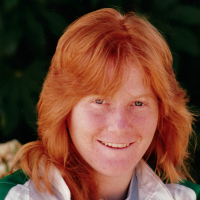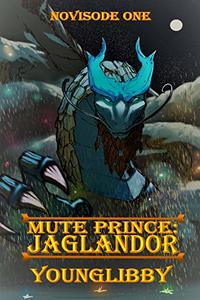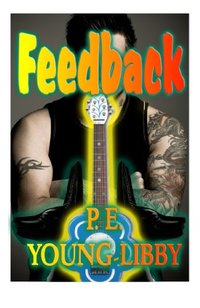P.E. YoungLibby Interview Published on: 13, Apr 2019
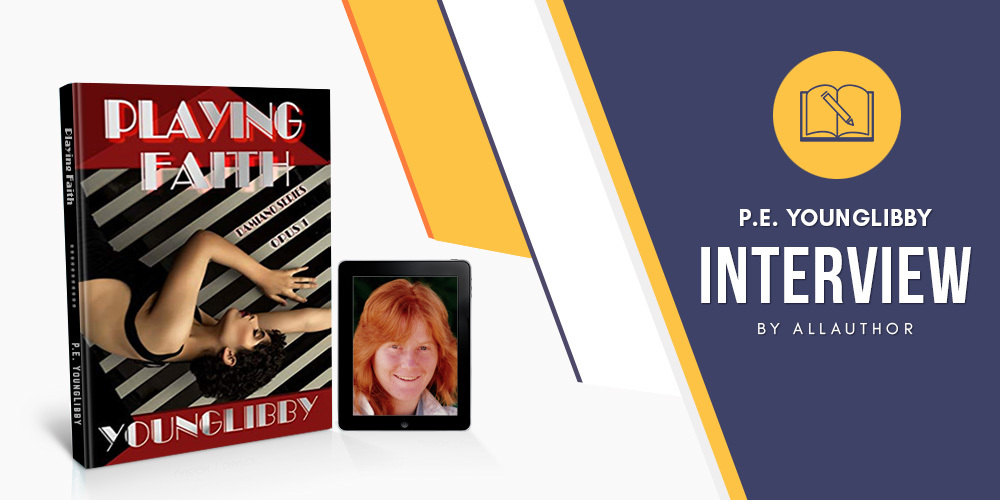 Where did you spend most of your childhood? Did you always want to be an author?
Where did you spend most of your childhood? Did you always want to be an author?
I spent most of my childhood outside, playing with friends, acting out my favorite TV shows and movies. I can’t tell you how many times I jumped out of trees yelling the s-word because I was playing Butch Cassidy and the Sundance Kid. I had an early aptitude for writing because if I didn’t like what happened in certain episodes I watched, I would simply imagine a new ending or a more interesting plot twist.
Being a former law enforcement officer, what inspired you to start writing?Funny story: I went into law enforcement because I wanted to write. I worked at a probation camp, like the one featured in the movie The Gridiron Gang with Dwayne Johnson. I knew all the folks portrayed in that movie personally, because I worked in the camp next door to that one. Working at camp meant I got to work three days straight, then had four days off to write. It was the perfect way to hone my craft while paying my bills. Plus, I got to interact with all sorts of interesting characters, from legal to law enforcement to criminal types.
Was there a specific moment that made you start writing and if so what was it?When I was eleven years old, I realized that there were so many cool things to do and be in the world, that the only way to get to them all in a single lifetime was to become a writer. As a writer, I would not be limited to one profession throughout my life, nor would I have to suffer through decades of schooling and training to become competent in that career. As a writer, could be an astronaut, a pilot, a doctor, a detective, a spy, a biologist, a cowboy, a lawyer, or even a big black bull (I was a huge fan of Ferdinand). How awesome is that? I made the choice to write at that age, and never looked back.
What is the most important aspect of building a great character?Avoid lists! So much writing advice about developing characters is backwards, in my opinion. Characters should represent the theme of the story, and should grow organically out of that, rather than having random attributes piled onto them that are unrelated to the overarching theme or problem of the story. Your Hero and your Villain represent the opposing arguments of your Theme.
What do you love the most about crafting thriller, fantasy, steampunk, speculative and paranormal romance fiction?Where to start? Everything! Just…everything. I love discovering and inventing new worlds. I love doing the research, whether it’s on contemporary crime syndicates, historical eras, or mythological and fantastical creatures. I even went to the rain forests of Kalimantan (Borneo) to research The Gentleman. But if I had to choose one thing above everything else, I love developing complex, deeply flawed characters who struggle to overcome their own imperfections while at the same time striving to make their fictional world a better place.
What is the most difficult thing about screenwriting?Marketing and selling your work. Which is also the most difficult thing, at least for me, about being a fiction writer. But if you’re asking what’s the most difficult thing I find about crafting a screenplay, it is making Final Draft behave.
Who inspired the character of Reese in "Feedback?' How do you come up with character names?Reese is an amalgamation of the kids I worked with as a Probation Officer. He embodies the attitudes of lots of incarcerated kids, the vast majority of whom are abused and neglected, who then give up hope and fall to their darker impulses. His name is an homage to a family member who believed so much in my writing ability that he bought me my first laptop computer. I tend to choose names that are symbolic of the thematic those characters represent, but there are some Easter egg homages sprinkled throughout my work.
How did you come up with the plot for "Playing Faith?"Another funny story: I wrote the fourth book in the series, Dying Ground first. That story gained a fair amount of acclaim in both novel and screenwriting competitions (It was a Nicholl Fellowships Finalist), but I realized that there were three books before this one. So, I went back to write Playing Faith, to explain how the characters started working together. As far as the actual process of plotting, I use the Atomic Story Method (That book is due to be released in June 2019). I developed this method after learning about obligatory scenes from Larry Riggins while attending the UCLA Producer’s Program. It is the most powerful, efficient way I know to develop long-form fiction.
How do you think the publishing industry has changed over the years? What is your perspective on self-publishing?Back in 1994 through 1999, I had editors at two major science fiction houses calling me periodically regarding Dying Ground. Both of them wanted to publish my book, but they didn’t know what shelf to put it on at the bookstore. It was soft sci-fi, but it was also a thriller, and it was also a romance. They wanted to wait until the movie came out. The movie folks, on the other hand, were all excited about the screenplay, but didn’t want to make the movie until the book came out. So I was in a catch 22. In 2001, 911 happened, which had a profound effect on movie financing, and disrupted the studio I’d been working with on the Rad Damiano script. The movie never happened and so the book never got published. Now, with self-publishing, I can put my stories out there and let the readers decide what shelf to put it on.
You are a very diverse author in terms of the genres you write in. You write action, romance, and supernatural suspense. Do you think that an author must be bound by genre?I think that the most popular authors are all ones who invented their genres: Stephen King, Dean Koontz, Tom Clancy, Laurell K. Hamilton, Ian Fleming, James Michener, and even Stan Lee broke out with stories that didn’t quite fit into the genre conventions of their time. Genres are powerful because they draw energy from archetypes. We are always evolving psychologically as a culture, so there are always going to be new ways and new interpretations of those classic archetypes. That being said, sticking to a single genre sure makes marketing easier.
What has being an author taught you so far? What sort of advantages do you think being a veteran gives you?All creative endeavors are emblematic of the Divine, but writing, being tied to the Word, is uniquely positioned. So much of the current world around us has only become manifest because someone, somewhere, somewhen wrote their ideas down. Your cellphone came into being because some writer wrote that up for Star Trek, and some engineer who was a Star Trek fan wanted to make something like that real. Writing is a profound act of creation that has ripples far beyond the moment. It makes us bigger, both as individuals and as a society.
What are some unconventional ideas or themes you write about in the Damiano series? (This question was asked about Crimson Storm, but I did not author that series, so I replaced it with my own series)This series has unconventional written all over it. From a classical pianist who becomes an action-thriller heroine to an unconventional, soft science fiction spin on psychic phenomena. Add in an out of the ordinary, complicated romance and some very shady, very powerful series-long villains and you have a whole new look at a few old genres.
What are some unconventional ideas or themes you write about in "Mute Prince?"The Mute Prince series takes the common fantasy tropes of Prophecy and the Chosen One and flips them on their heads. The entire series explores the tension between accepting one’s fate vs. choosing one’s destiny. Another unconventional thing about the Mute Prince is the way that series is structured, since it is specifically designed to be episodic, like a binge-worthy television series (which is why I call the books Novisodes and not novellas). The action builds quickly and each ends on a cliff hanger.
What are your plans for the future? Where do you see yourself as an author in 10 years time?I imagine I’ll have completed the various series I’m writing now and have started on quite a few more, including the steampunk series I'm currently working on. My goal is to have at least 20 books published by 2025. It would be fantastic if at least one of those is made into a movie or TV show. I was born to write, and I’ll be writing until I’m in the grave. Maybe beyond.
What are some websites you like to use for your book promotions and how do you think AllAuthor measures up?I really like how AllAuthor creates tweets for me, so I don’t have to be a slave to the whole social media thing. I haven’t found another promotion site that gives the same value as AllAuthor for the price.
Share P.E. YoungLibby's interview
P.E. YoungLibby spent most of her childhood outside, playing with friends, acting out her favorite TV shows and movies. She worked at a probation camp, like the one featured in the movie The Gridiron Gang with Dwayne Johnson. When she was eleven years old, she realized that there were so many cool things to do and be in the world, that the only way to get to them all in a single lifetime was to become a writer. She loves doing the research, whether it’s on contemporary crime syndicates, historical eras, or mythological and fantastical creatures. Her goal is to have at least 20 books published by 2025.
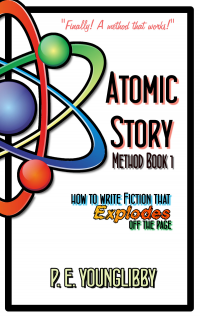 Atomic Story: How to Write Fiction that Explodes Off the Page (Atomic Story Method Book 1)
Genre: Advice & How To
Atomic Story: How to Write Fiction that Explodes Off the Page (Atomic Story Method Book 1)
Genre: Advice & How To
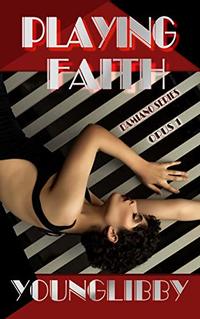 Playing Faith: Damiano Series Opus 1
Genre: Crime Fiction, Thriller, Suspense, Mystery, Supernatural Suspense, Action & Adventure, Paranormal Romance, Time Travel Romance, Science Fiction
Playing Faith: Damiano Series Opus 1
Genre: Crime Fiction, Thriller, Suspense, Mystery, Supernatural Suspense, Action & Adventure, Paranormal Romance, Time Travel Romance, Science Fiction
